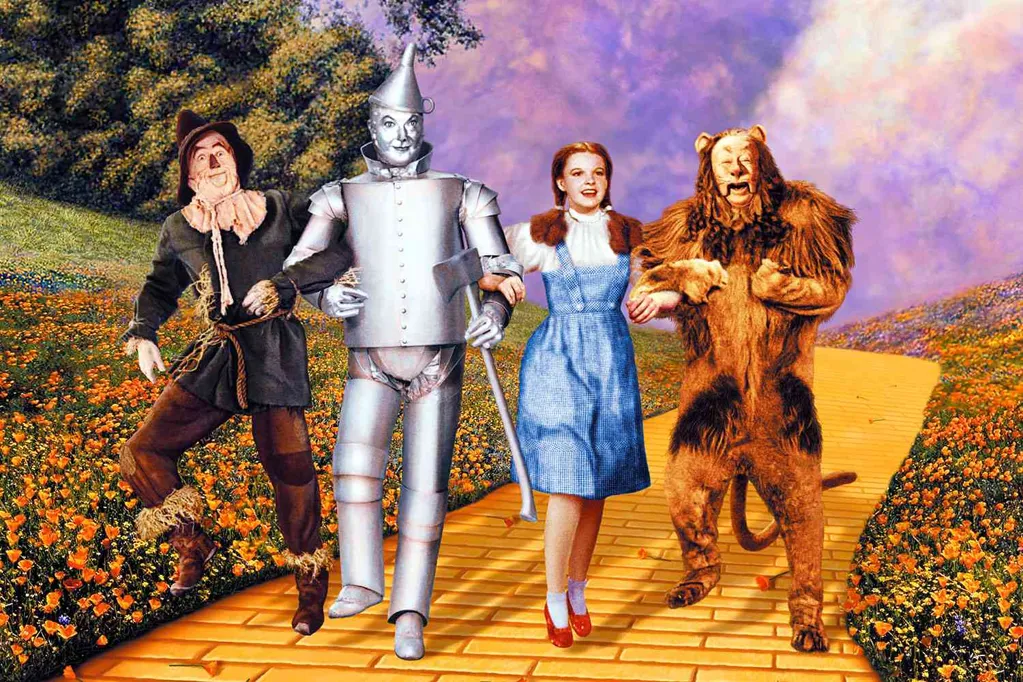While some tell the truth of making movie magic, there are many myths to debunk in the story of Oz.
The Wizard of Oz changed cinema as we knew it and was a mainstay in what's considered the Golden Age of Hollywood. The 1939 classic follows Kansas teen Dorothy Gale (Judy Garland) who gets swept away to a magical land by a powerful tornado, beginning an adventure full of unlikely friendships, accidents and mishaps.
The film's place in history is undeniable, but the history of the film's production is in a category unto itself. Over the years, many rumors have arisen about what was going on behind the scenes and whether this cast was "cursed."
Oz expert and historian John Fricke, the author of The Wizard of Oz, The Official 50th Anniversary Pictorial History and The Wizard of Oz, An Illustrated Companion to the Timeless Movie Classic, is taking on some of the tales and myths tied to one of Hollywood's biggest films.
Fricke notes that innovative movie-making contributed to many of the reported incidents from the set of The Wizard of Oz.
"They were doing stuff that had never been done before and attempting stuff that had never been done before," he shared.
Examples of accidents on set included Margaret Hamilton, the actress who played the Wicked Witch of the West, who suffered second- and third-degree burns during one scene. Her stunt double, Betty Danko, was also hospitalized after an explosion.
In another case, actor Buddy Ebsen, the original Tin Man, had to drop out of filming after a frighteningly adverse reaction to the stage makeup. He reacted badly to the aluminium dust in the makeup, according to the Academy of Motion Pictures Arts and Sciences.
Fricke says "90 percent" of what filmmakers attempted "gave us a classic motion picture." The other 10 percent that went wrong unintentionally "has been inflated to 98 percent -- and now it's been fabricated and lied right into a legend."
In addition to rigorous filming conditions, which saw the whole shoot take place in just 22 weeks, the star earned less as Dorothy than her male counterparts did in their roles. Garland’s salary, per The LA Times, was just $500 a week. By comparison, Ray Bolger and Jack Haley allegedly made $3,000 a week, with Bert Lahr earning $2,500 a week.
While there is no way to know for sure, asbestos was commonly used in chrysotile form to create snow-covered movie scenes. There's no documentation confirming this is the case for The Wizard of Oz, but it wouldn't be out of place for the time when the film was created.
A 2017 memoir by Judy Garland's ex-husband, Sid Luft, claimed the Dorothy actress was repeatedly molested by some of the actors who played the Munchkins in the classic musical. However, Fricke claims this is another case of incidents on set being overdramatized.
"The Munchkins did not sexually abuse Judy Garland," Fricke shared. "One of them asked her out to dinner and she said no. That was as far as it went."
A widespread rumor alleges that not only did one of the Munchkins die by suicide on the set, but that an image of such can be seen in the background of the film's action. Historians insist this is not the case.
"There is no hanging Munchkin at Tin Man's cottage. This is the kind of stuff that gets perpetuated."
"We're living at a time when anything is believable," says Fricke. "It's become the fabric of our day-to-day life. But we know the truth."
For decades, fans of Pink Floyd have alleged that their classic album, Dark Side of the Moon, matches perfectly with the action of The Wizard of Oz.
However, members of the band, as well as those involved in the making of the album, have shut down the connection time and time again.
In a 1997 interview with MTV, engineer Alan Parsons said, "There simply wasn't [the] mechanics to do it. We had no means of playing videotapes in the room at all. I don't think VHS had come along by '72, had it?"
